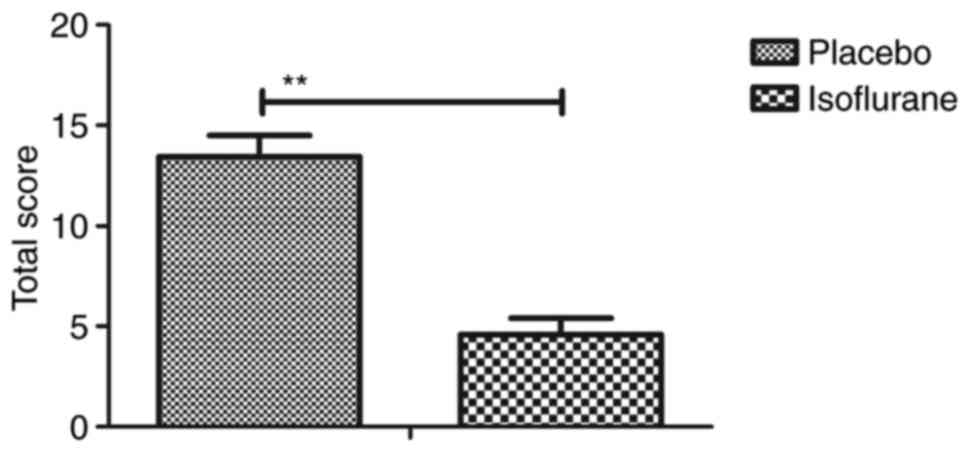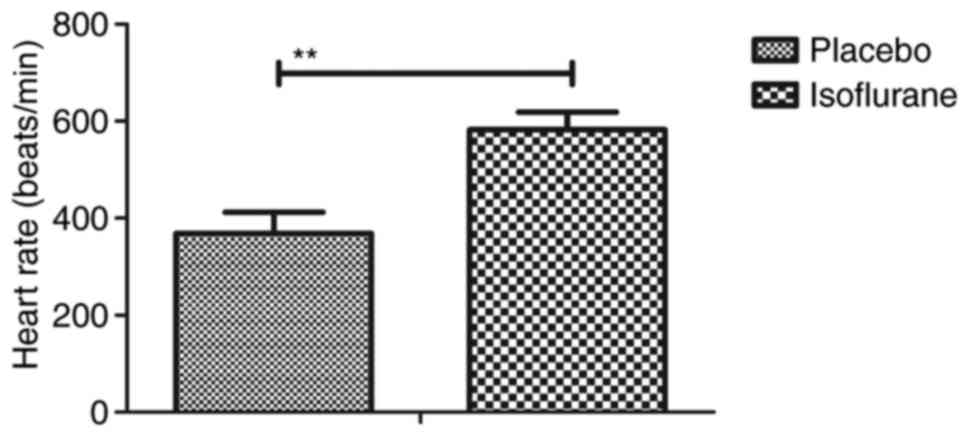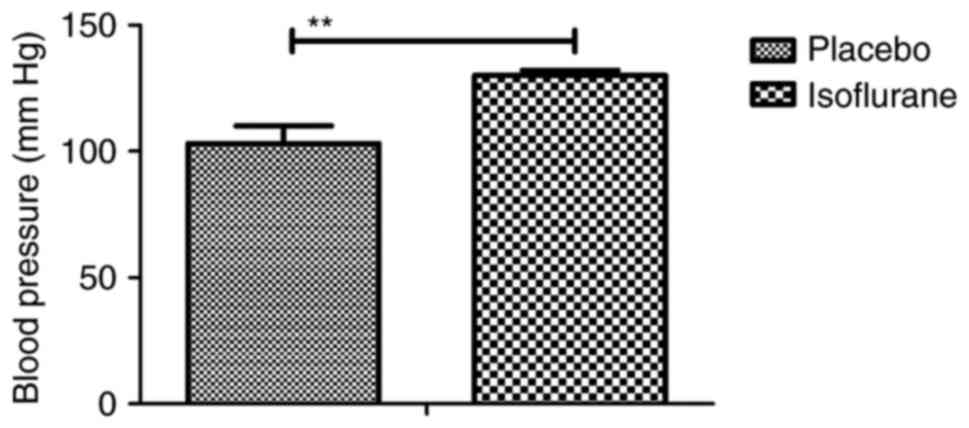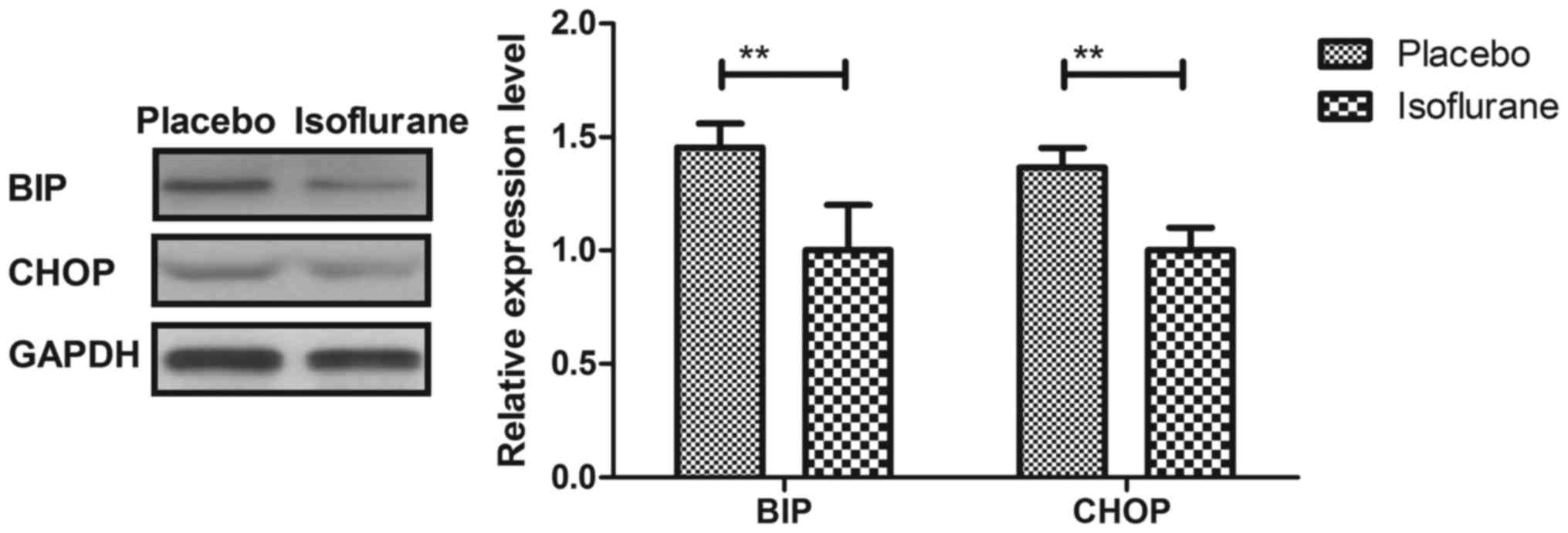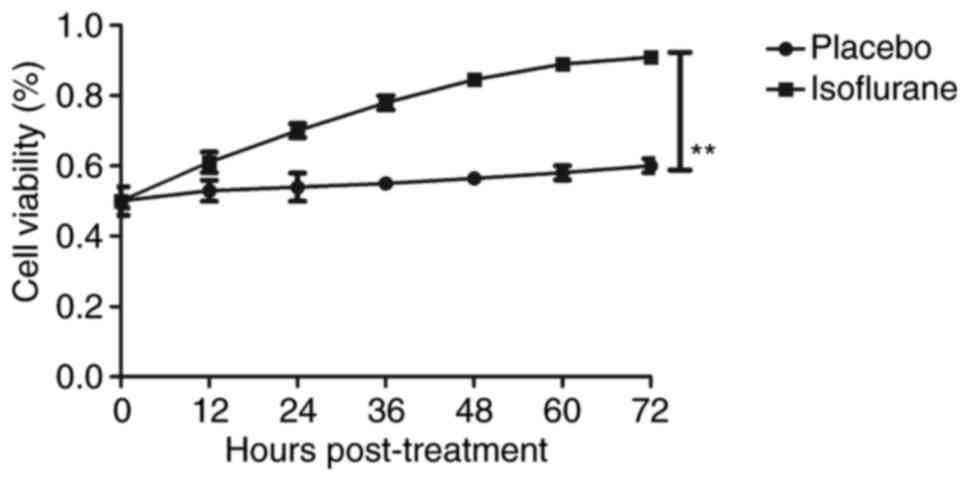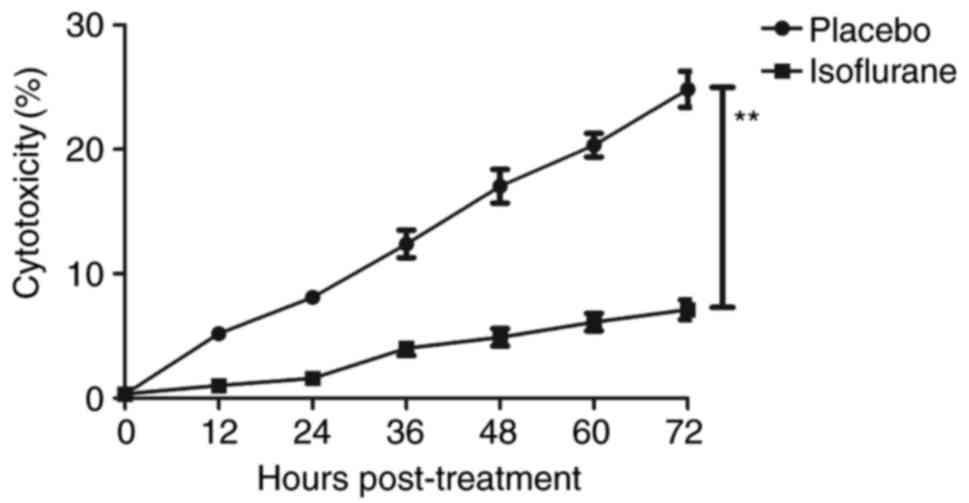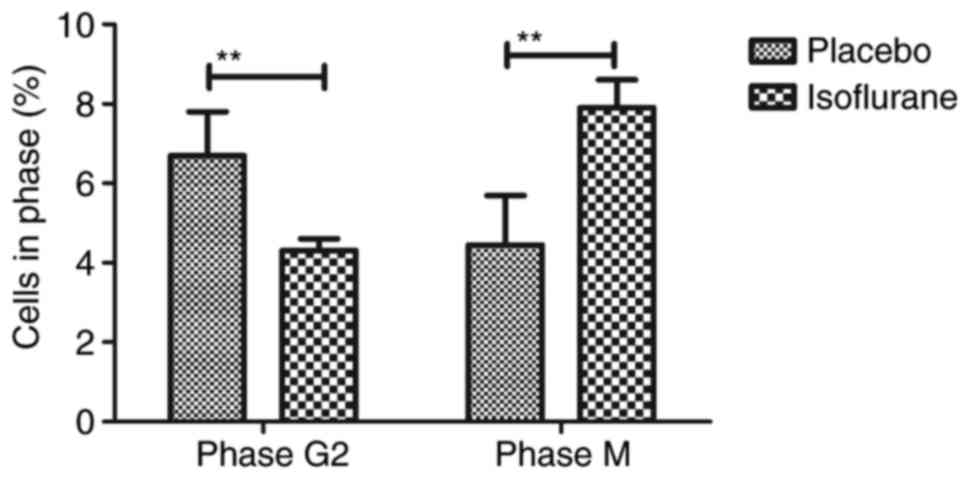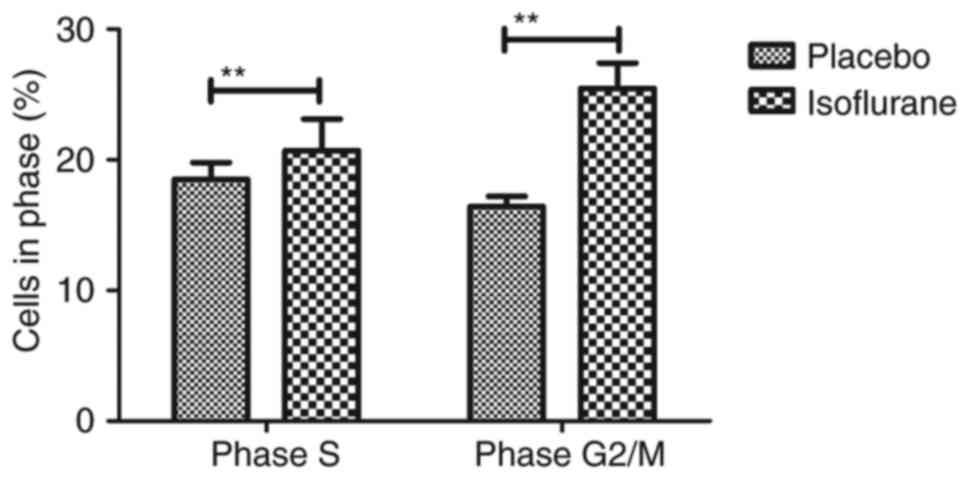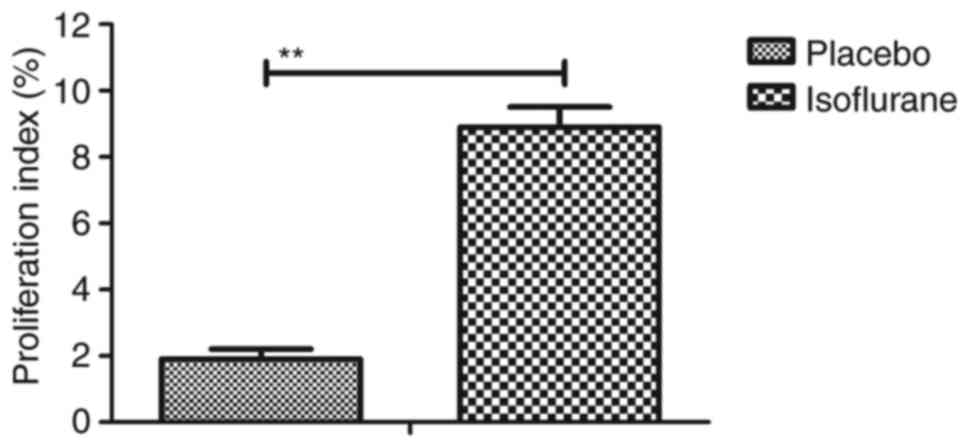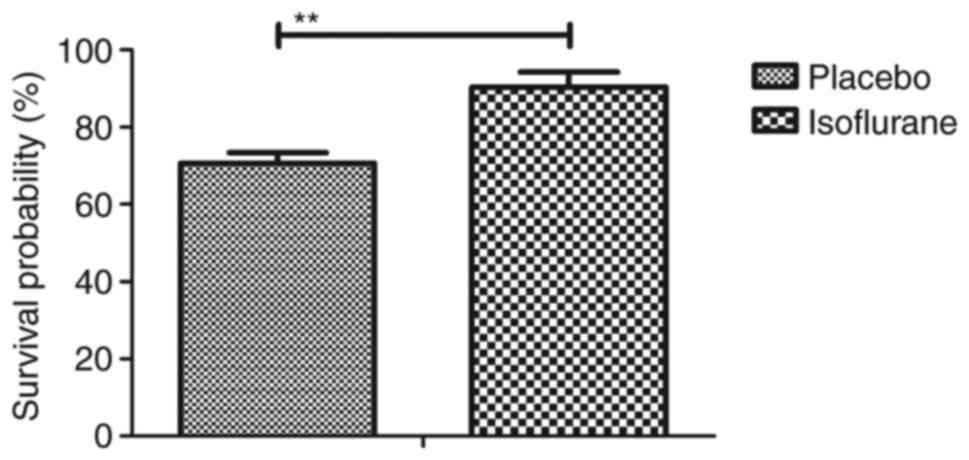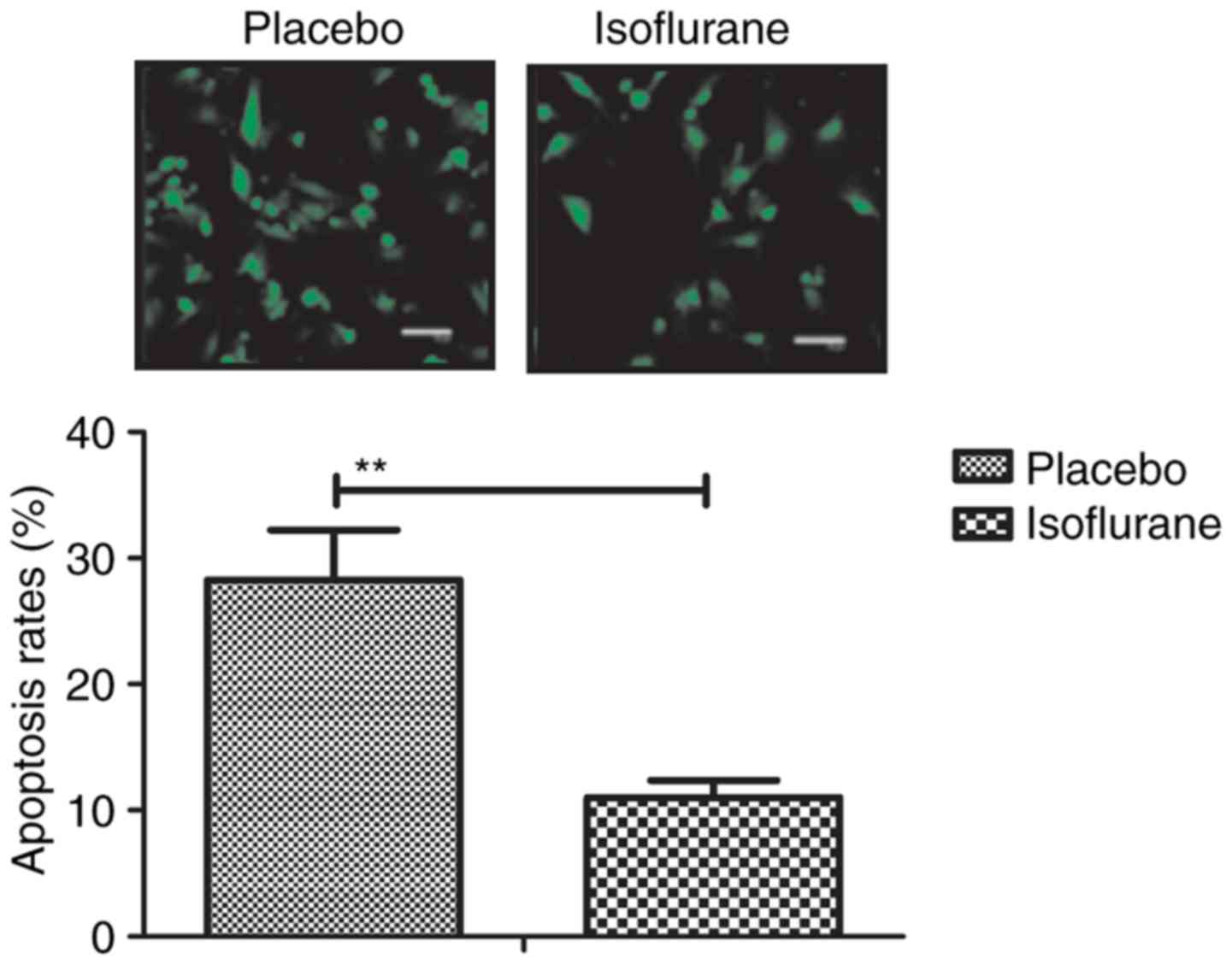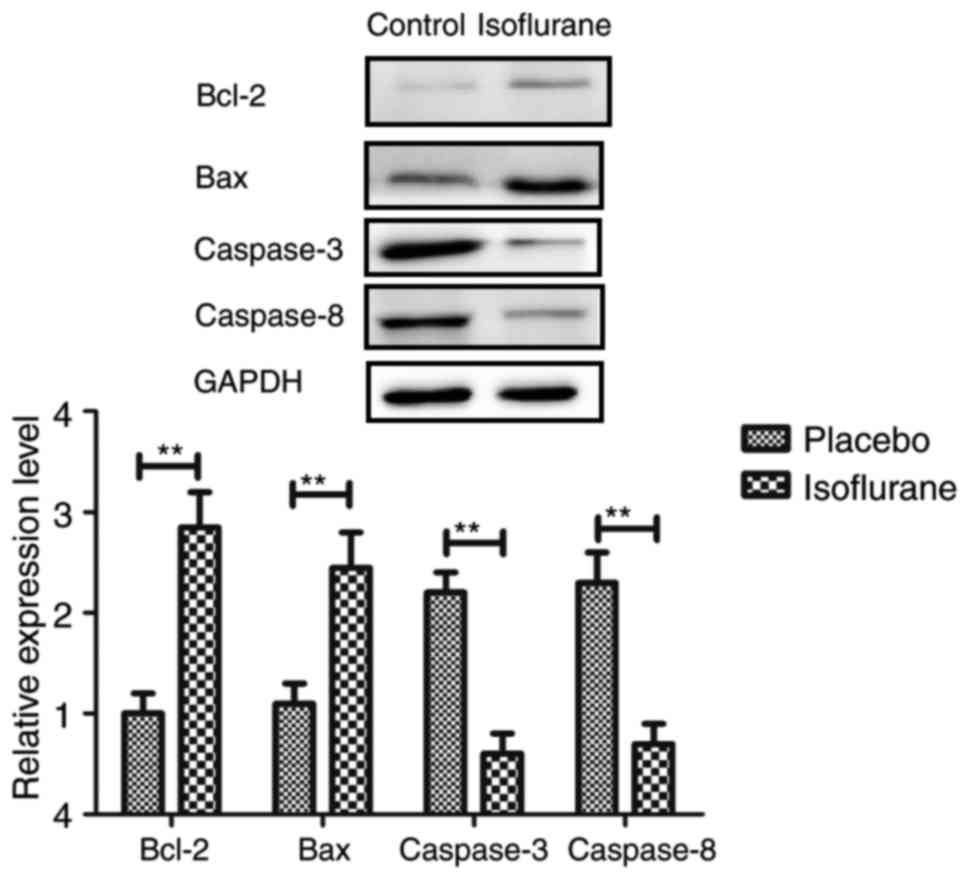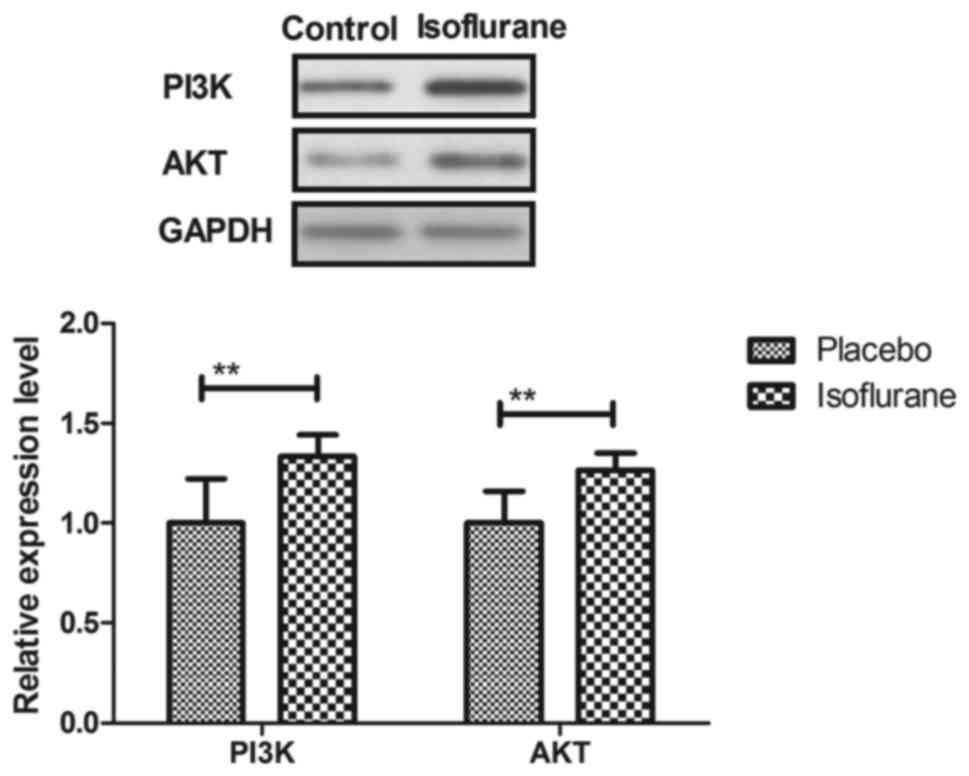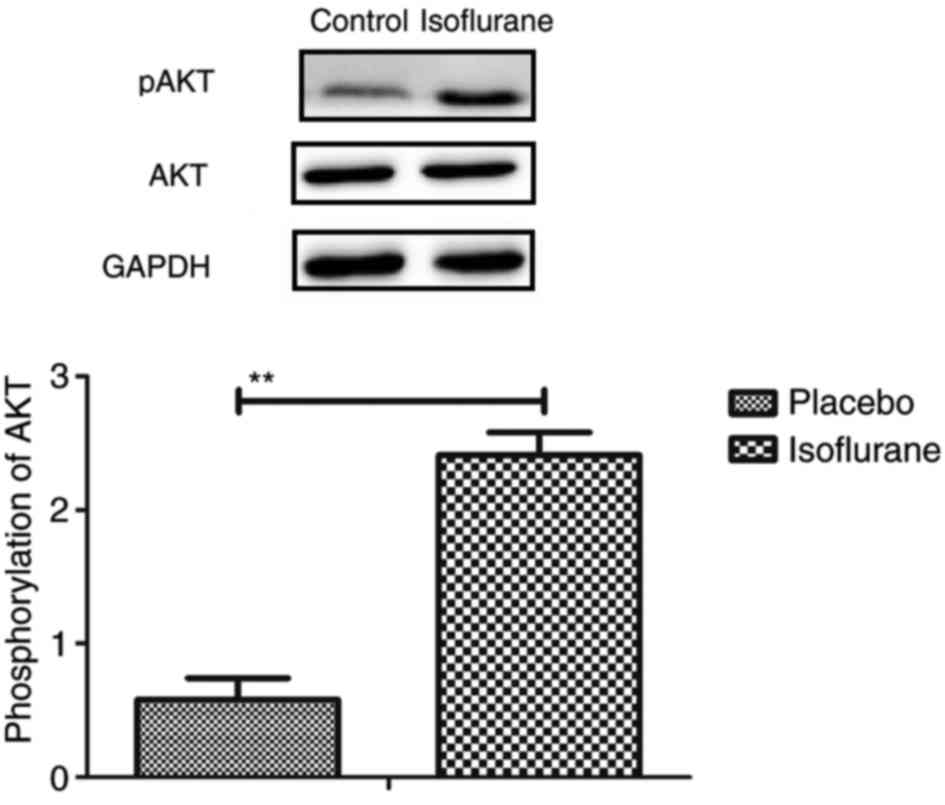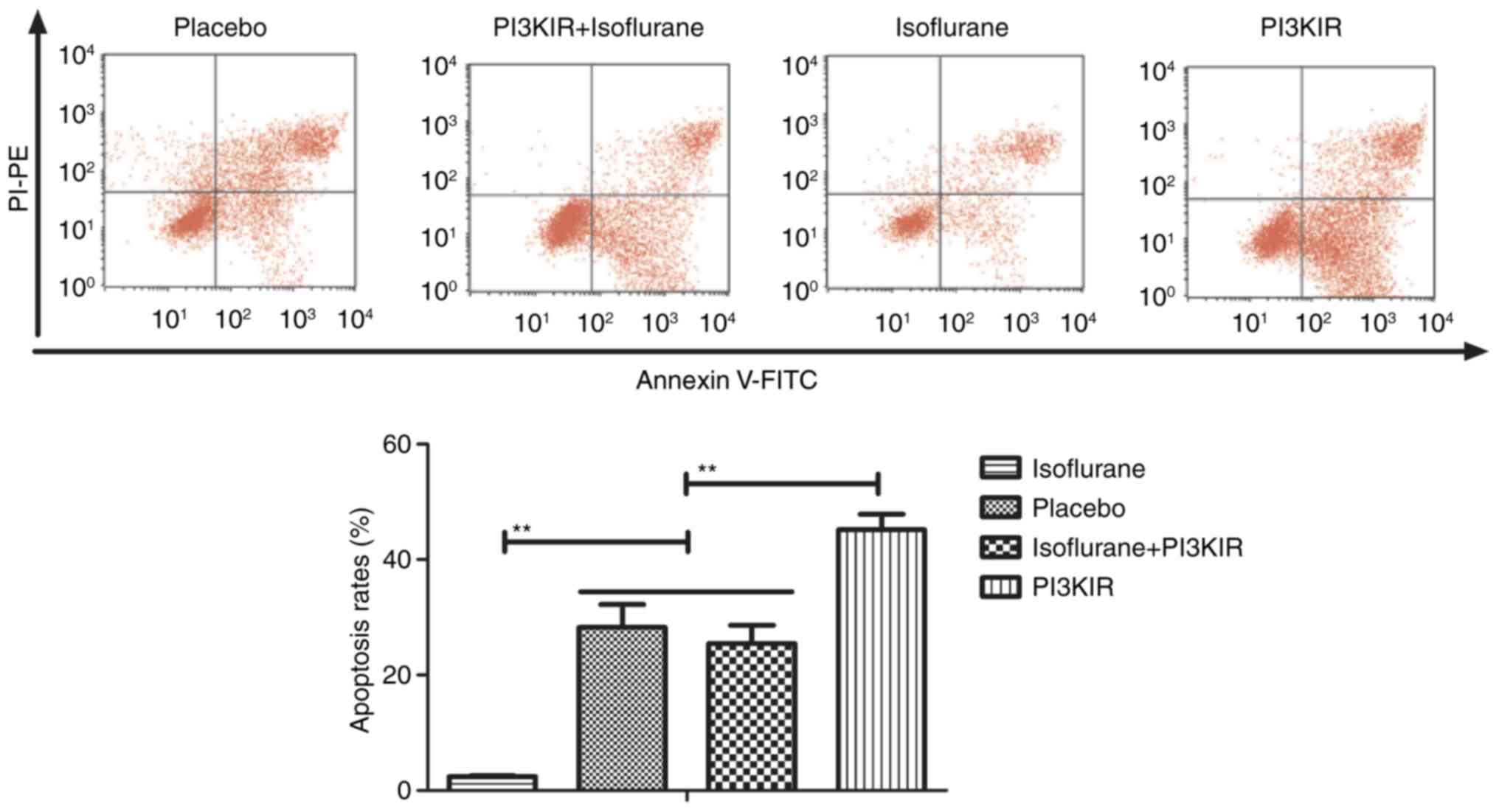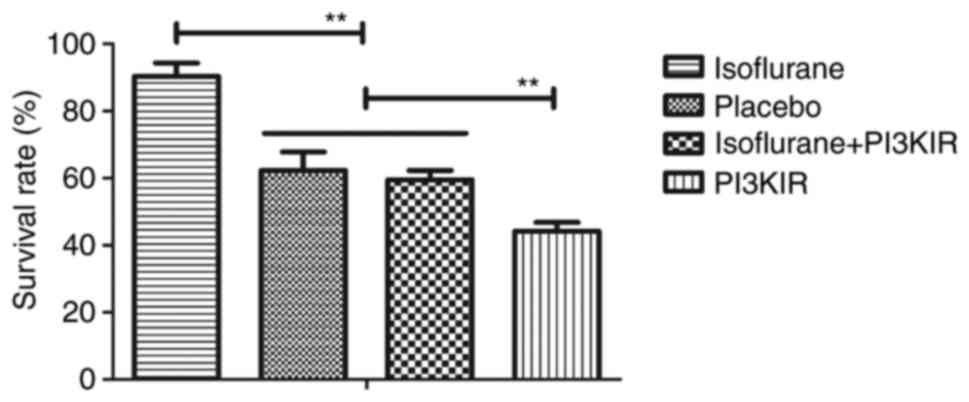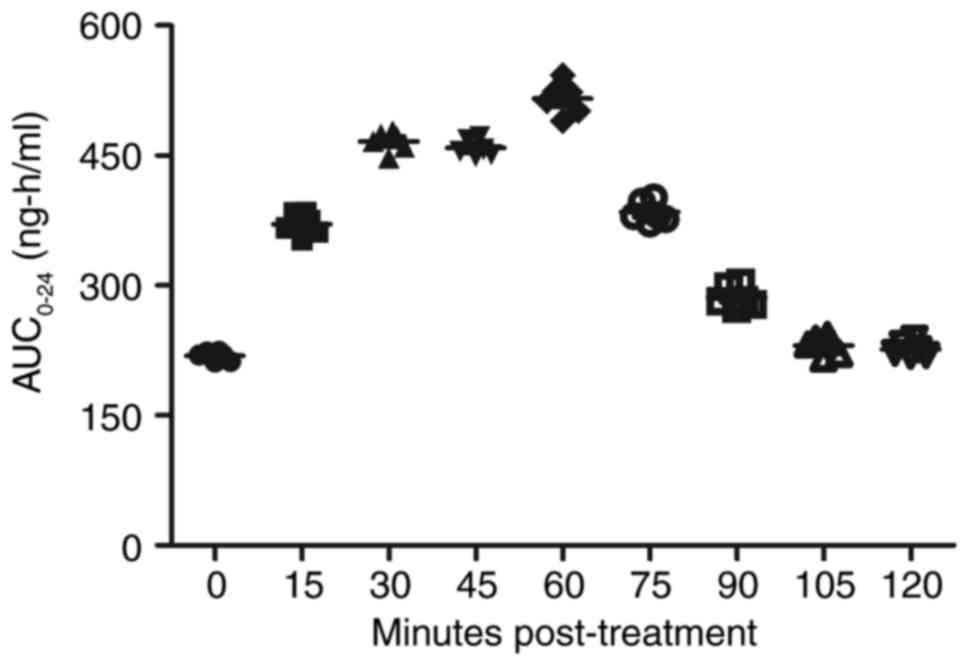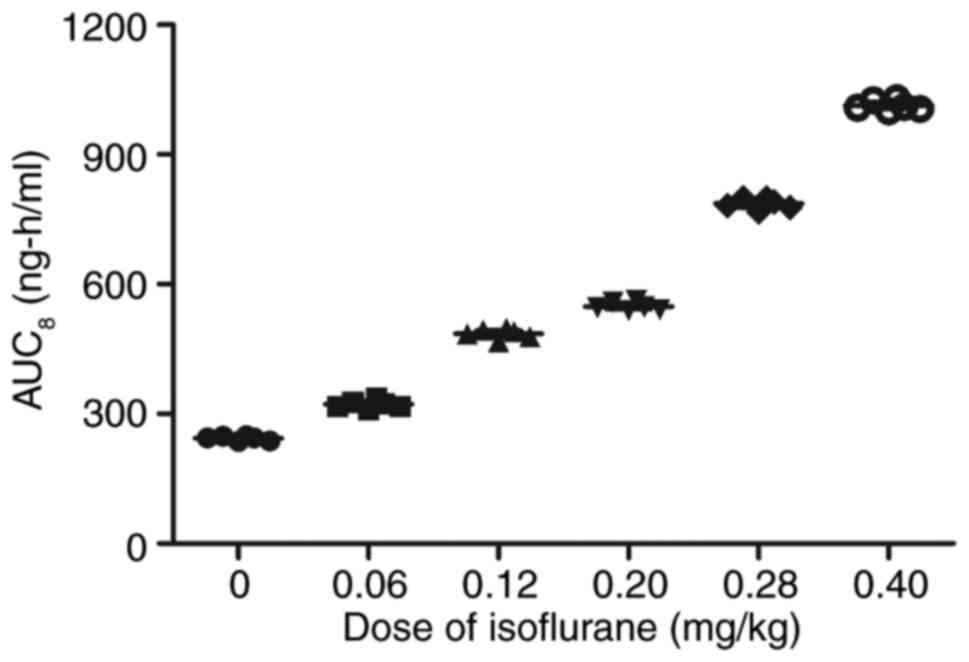|
1
|
Yang CJ, Yang J and Fan ZX: Activating
transcription factor 3-an endogenous inhibitor of myocardial
ischemia-reperfusion injury (Review). Mol Med Rep. 13:9–12. 2016.
View Article : Google Scholar : PubMed/NCBI
|
|
2
|
Yang Y, Sun Y, Yi W, Li Y, Fan C, Xin Z,
Jiang S, Di S, Qu Y, Reiter RJ and Yi D: A review of melatonin as a
suitable antioxidant against myocardial ischemia-reperfusion injury
and clinical heart diseases. J Pineal Res. 57:357–366. 2014.
View Article : Google Scholar : PubMed/NCBI
|
|
3
|
Wang N, Min X, Li D, He P and Zhao L:
Geranylgeranylacetone protects against myocardial ischemia and
reperfusion injury by inhibiting high-mobility group box 1 protein
in rats. Mol Med Rep. 5:521–524. 2012. View Article : Google Scholar : PubMed/NCBI
|
|
4
|
Yao HC, Zhou M, Zhou YH, Wang LH, Zhang
DY, Han QF, Liu T, Wu L, Tian KL and Zhang M: Intravenous high
mobility group box 1 upregulates the expression of HIF-1α in the
myocardium via a protein kinase B-dependent pathway in rats
following acute myocardial ischemia. Mol Med Rep. 13:1211–1219.
2016. View Article : Google Scholar : PubMed/NCBI
|
|
5
|
He F, Xu BL, Chen C, Jia HJ, Wu JX, Wang
XC, Sheng JL, Huang L and Cheng J: Methylophiopogonanone A
suppresses ischemia/reperfusion-induced myocardial apoptosis in
mice via activating PI3K/Akt/eNOS signaling pathway. Acta Pharmacol
Sin. 37:763–771. 2016. View Article : Google Scholar : PubMed/NCBI
|
|
6
|
Kamata M, Oda T, Nomura T, Yamasaki A,
Takahama Y, Yabuta N, Nakazawa H and Takahashi M: Anesthetic
management of Jehovah's Witnesses patients undergoing open heart
surgery with cardiopulmonary bypass. Masui. 60:367–372. 2011.(In
Japanese). PubMed/NCBI
|
|
7
|
Sindhvananda W, Phisaiphun K and
Prapongsena P: No renal protection from volatile-anesthetic
preconditioning in open heart surgery. J Anesth. 27:48–55. 2013.
View Article : Google Scholar : PubMed/NCBI
|
|
8
|
Raha A, Ganjoo P, Singh A, Tandon MS and
Singh D: Surgery for brain abscess in children with cyanotic heart
disease: An anesthetic challenge. J Pediatr Neurosci. 7:23–26.
2012. View Article : Google Scholar : PubMed/NCBI
|
|
9
|
Valerio R Jr, Durra O and Gold ME:
Anesthetic considerations for an adult heart transplant recipient
undergoing noncardiac surgery: A case report. AANA J. 82:293–299.
2014.PubMed/NCBI
|
|
10
|
Li H and Lang XE: Protein kinase C
signaling pathway involvement in cardioprotection during isoflurane
pretreatment. Mol Med Rep. 11:2683–2688. 2015. View Article : Google Scholar : PubMed/NCBI
|
|
11
|
Xiao Z, Ren P, Chao Y, Wang Q, Kuai J, Lv
M, Chen L, Gao C and Sun X: Protective role of isoflurane
pretreatment in rats with focal cerebral ischemia and the
underlying molecular mechanism. Mol Med Rep. 12:675–683. 2015.
View Article : Google Scholar : PubMed/NCBI
|
|
12
|
Hou L, Liu T and Wang J: Isoflurane
suppresses the self-renewal of normal mouse neural stem cells in a
p53-dependent manner by activating the Lkb1-p53-p21 signalling
pathway. Mol Med Rep. 12:7412–7418. 2015. View Article : Google Scholar : PubMed/NCBI
|
|
13
|
Yang H, Deng J, Jiang Y, Chen J, Zeng X,
He Z, Jiang X, Li Z and Jiang C: Emulsified isoflurane treatment
inhibits the cell cycle and respiration of human bronchial
epithelial 16HBE cells in a p53-independent manner. Mol Med Rep.
14:349–354. 2016. View Article : Google Scholar : PubMed/NCBI
|
|
14
|
Shi LX, Wang JH and Shi XD: PI3K/AKT/mTOR
pathway and pediatric T acute lymphoblastic leukemia-review.
Zhongguo Shi Yan Xue Ye Xue Za Zhi. 24:1269–1274. 2016.(In
Chinese). PubMed/NCBI
|
|
15
|
Wang CM, Cai XL and Wen QP: Astaxanthin
reduces isoflurane-induced neuroapoptosis via the PI3K/Akt pathway.
Mol Med Rep. 13:4073–4078. 2016. View Article : Google Scholar : PubMed/NCBI
|
|
16
|
Lovell MJ, Yasin M, Lee KL, Cheung KK,
Shintani Y, Collino M, Sivarajah A, Leung KY, Takahashi K, Kapoor
A, et al: Bone marrow mononuclear cells reduce myocardial
reperfusion injury by activating the PI3K/Akt survival pathway.
Atherosclerosis. 213:67–76. 2010. View Article : Google Scholar : PubMed/NCBI
|
|
17
|
Fang J, Hu F, Ke D, Yan Y, Liao Z, Yuan X,
Wu L, Jiang Q and Chen L: N,N-dimethylsphingosine attenuates
myocardial ischemia-reperfusion injury by recruiting regulatory T
cells through PI3K/Akt pathway in mice. Basic Res Cardiol.
111:322016. View Article : Google Scholar : PubMed/NCBI
|
|
18
|
Hu Y, Li L, Yin W, Shen L, You B and Gao
H: Protective effect of proanthocyanidins on anoxia-reoxygenation
injury of myocardial cells mediated by the PI3K/Akt/GSK-3β pathway
and mitochondrial ATP-sensitive potassium channel. Mol Med Rep.
10:2051–2058. 2014. View Article : Google Scholar : PubMed/NCBI
|
|
19
|
Swallow J, Anderson D, Buckwell AC, Harris
T, Hawkins P, Kirkwood J, Lomas M, Meacham S, Peters A, Prescott M,
et al: Guidance on the transport of laboratory animals. Lab Anim.
39:1–39. 2005. View Article : Google Scholar : PubMed/NCBI
|
|
20
|
Jong WM, Ten Cate H, Linnenbank AC, de
Boer OJ, Reitsma PH, de Winter RJ and Zuurbier CJ: Reduced acute
myocardial ischemia-reperfusion injury in IL-6-deficient mice
employing a closed-chest model. Inflamm Res. 65:489–499. 2016.
View Article : Google Scholar : PubMed/NCBI
|
|
21
|
Shu A, Zhan L, Fang H, Lv E, Chen X, Zhang
M and Wang Q: Evaluation of remifentanil anesthesia for off-pump
coronary artery bypass grafting surgery using heart rate
variability. Exp Ther Med. 6:253–259. 2013. View Article : Google Scholar : PubMed/NCBI
|
|
22
|
Wolfe AM, Kennedy LH, Na JJ and
Nemzek-Hamlin JA: Efficacy of tramadol as a sole analgesic for
postoperative pain in male and female mice. J Am Assoc Lab Anim
Sci. 54:411–419. 2015.PubMed/NCBI
|
|
23
|
Trotti A, Byhardt R, Stetz J, Gwede C,
Corn B, Fu K, Gunderson L, McCormick B, Morrisintegral M, Rich T,
et al: Common toxicity criteria: Version 2.0. an improved reference
for grading the acute effects of cancer treatment: Impact on
radiotherapy. Int J Radiat Oncol Biol Phys. 47:13–47. 2000.
View Article : Google Scholar : PubMed/NCBI
|
|
24
|
Boss DS, Glen H, Beijnen JH, Keesen M,
Morrison R, Tait B, Copalu W, Mazur A, Wanders J, O'Brien JP, et
al: A phase I study of E7080, a multitargeted tyrosine kinase
inhibitor, in patients with advanced solid tumours. Br J Cancer.
106:1598–1604. 2012. View Article : Google Scholar : PubMed/NCBI
|
|
25
|
Wai-Hoe L, Wing-Seng L, Ismail Z and
Lay-Harn G: SDS-PAGE-based quantitative assay for screening of
kidney stone disease. Biol Proced Online. 11:145–160. 2009.
View Article : Google Scholar : PubMed/NCBI
|
|
26
|
Hagman S, Kolasa M, Basnyat P, Helminen M,
Kähönen M, Dastidar P, Lehtimäki T and Elovaara I: Analysis of
apoptosis-related genes in patients with clinically isolated
syndrome and their association with conversion to multiple
sclerosis. J Neuroimmunol. 280:43–48. 2015. View Article : Google Scholar : PubMed/NCBI
|
|
27
|
Alexiou GA, Vartholomatos G, Stefanaki K,
Lykoudis EG, Patereli A, Tseka G, Tzoufi M, Sfakianos G and
Prodromou N: The role of fast cell cycle analysis in pediatric
brain tumors. Pediatr Neurosurg. 50:257–263. 2015. View Article : Google Scholar : PubMed/NCBI
|
|
28
|
Mehravi B, Alizadeh AM, Khodayari S,
Khodayari H, Ashtari K, Mohseni M, Anaraki NI, Dana EA, Safari S
and Amanlou M: Acute toxicity evaluation of glycosylated
Gd3+-based silica nanoprobe. Mol Imaging Biol.
19:522–530. 2017. View Article : Google Scholar : PubMed/NCBI
|
|
29
|
Wang Z, Zhang J, Ren T and Dong Z:
Targeted metabolomic profiling of cardioprotective effect of
Ginkgo biloba L. extract on myocardial ischemia in rats.
Phytomedicine. 23:621–631. 2016. View Article : Google Scholar : PubMed/NCBI
|
|
30
|
Constantinides C and Murphy K: Molecular
and integrative physiological effects of isoflurane anesthesia: The
paradigm of cardiovascular studies in rodents using magnetic
resonance imaging. Front Cardiovasc Med. 3:232016. View Article : Google Scholar : PubMed/NCBI
|
|
31
|
Cohen D, Zalucki OH, van Swinderen B and
Tsuchiya N: Local versus global effects of isoflurane anesthesia on
visual processing in the fly brain. pii: ENEURO.0116-16.2016. doi:
10.1523/ENEURO.0116-16.2016. eCollection. 2016 Jul-Aug;
|
|
32
|
McCracken ML, Gorini G, McCracken LM,
Mayfield RD, Harris RA and Trudell JR: Inter- and intra-subunit
butanol/isoflurane sites of action in the human glycine receptor.
Front Mol Neurosci. 9:452016. View Article : Google Scholar : PubMed/NCBI
|
|
33
|
Ruxanda F, Gal AF, Raţiu C, Miclăuş V, Rus
V and Oana LI: Comparative immunohistochemical assessment of the
effect of repetitive anesthesia with isoflurane and sevoflurane on
rat liver. Braz J Anesthesiol. 66:465–469. 2016. View Article : Google Scholar : PubMed/NCBI
|
|
34
|
Feng C, Liu Y, Yuan Y, Cui W, Zheng F, Ma
Y and Piao M: Isoflurane anesthesia exacerbates learning and memory
impairment in zinc-deficient APP/PS1 transgenic mice.
Neuropharmacology. 111:119–129. 2016. View Article : Google Scholar : PubMed/NCBI
|
|
35
|
Figueiro MR, Soares JH, Ascoli FO, Werre S
and Gomez de Segura IA: Isoflurane MAC determination in dogs using
three intensities of constant-current electrical stimulation. Vet
Anaesth Analg. 43:464–471. 2016. View Article : Google Scholar : PubMed/NCBI
|
|
36
|
Wang L, Niu X, Hu J, Xing H, Sun M, Wang
J, Jian Q and Yang H: After myocardial ischemia-reperfusion,
miR-29a and Let7 could affect apoptosis through regulating IGF-1.
Biomed Res Int. 2015:2454122015. View Article : Google Scholar : PubMed/NCBI
|
|
37
|
Wakiyama H, Cowan DB, Toyoda Y, Federman
M, Levitsky S and McCully JD: Selective opening of mitochondrial
ATP-sensitive potassium channels during surgically induced
myocardial ischemia decreases necrosis and apoptosis. Eur J
Cardiothorac Surg. 21:424–433. 2002. View Article : Google Scholar : PubMed/NCBI
|
|
38
|
Elsasser A, Suzuki K, Lorenz-Meyer S, Bode
C and Schaper J: The role of apoptosis in myocardial ischemia: a
critical appraisal. Basic Res Cardiol. 96:219–226. 2001. View Article : Google Scholar : PubMed/NCBI
|
|
39
|
Huang X, Zuo L, Lv Y, Chen C, Yang Y, Xin
H, Li Y and Qian Y: Asiatic acid attenuates myocardial
ischemia/reperfusion injury via Akt/GSK-3β/HIF-1α signaling in rat
H9c2 cardiomyocytes. Molecules. 21:pii: E1248. 2016. View Article : Google Scholar :
|
|
40
|
Jiang J and Jiang H: Effect of the inhaled
anesthetics isoflurane, sevoflurane and desflurane on the
neuropathogenesis of Alzheimer's disease (Review). Mol Med Rep.
12:3–12. 2015. View Article : Google Scholar : PubMed/NCBI
|
|
41
|
Brambrink AM, Back SA, Riddle A, Gong X,
Moravec MD, Dissen GA, Creeley CE, Dikranian KT and Olney JW:
Isoflurane-induced apoptosis of oligodendrocytes in the neonatal
primate brain. Ann Neurol. 72:525–535. 2012. View Article : Google Scholar : PubMed/NCBI
|
|
42
|
Sopka S, Mertens C, Roehl AB, Schiffl K,
Rossaint R and Classen-Linke I: Effects of xenon and isoflurane on
apoptosis and inflammation in a porcine myocardial infarction
model. Ann Anat. 195:166–174. 2013. View Article : Google Scholar : PubMed/NCBI
|
|
43
|
Nagaoka K, Matoba T, Mao Y, Nakano Y,
Ikeda G, Egusa S, Tokutome M, Nagahama R, Nakano K, Sunagawa K and
Egashira K: A new therapeutic modality for acute myocardial
infarction: Nanoparticle-mediated delivery of pitavastatin induces
cardioprotection from ischemia-reperfusion injury via activation of
PI3K/Akt pathway and anti-inflammation in a rat model. PLoS One.
10:e01324512015. View Article : Google Scholar : PubMed/NCBI
|
|
44
|
Guidetti GF, Canobbio I and Torti M:
PI3K/Akt in platelet integrin signaling and implications in
thrombosis. Adv Biol Regul. 59:36–52. 2015. View Article : Google Scholar : PubMed/NCBI
|















